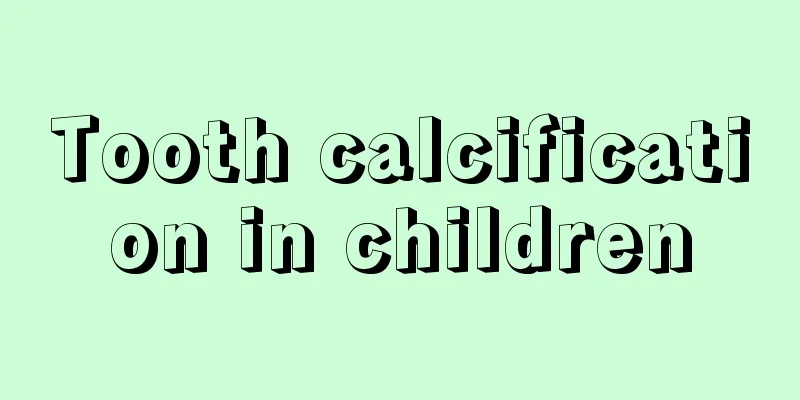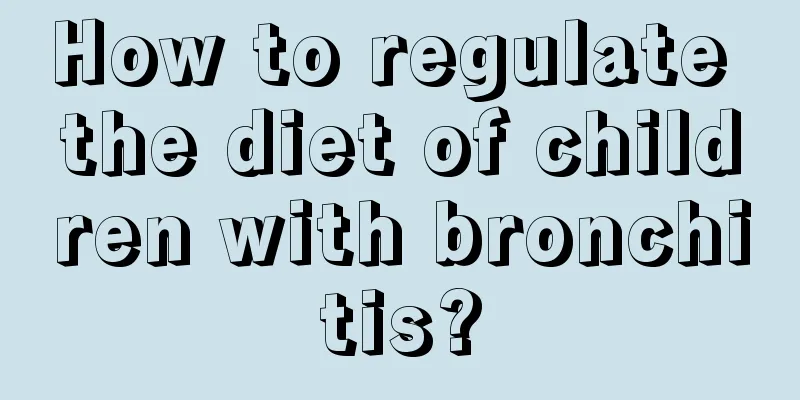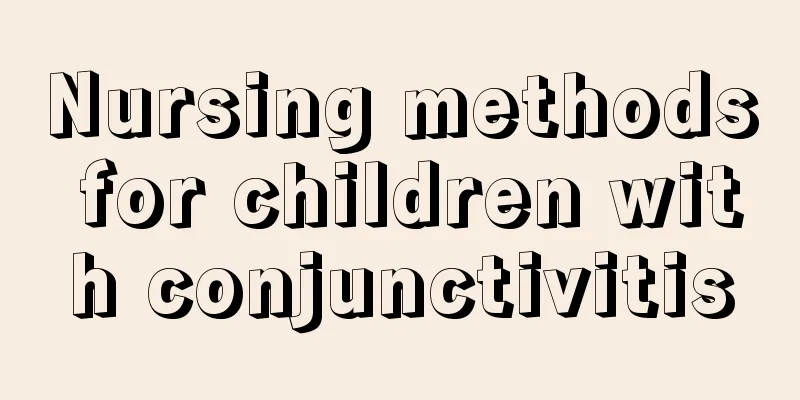Tooth calcification in children

| The health of our teeth is very important to us. Therefore, when children are young, parents should pay attention to protecting their teeth. They should teach them to brush their teeth carefully, develop good brushing habits, try to eat less foods that are corrosive to teeth, etc. Also, pay attention to giving children more foods high in calcium. Calcium supplementation is also good for children's teeth. When children have problems with their teeth, it is best to see a dentist. 1. Supplement calcium and vitamins. In order to ensure good calcification of teeth during development, pregnant women and children should strengthen their physical fitness, prevent diseases, and supplement nutrients in a timely and appropriate manner, especially substances containing calcium and vitamins D and A. Recommendation: You should eat more pork and beef bone soup, milk, eggs, beans, fresh vegetables, etc. to meet the needs of the body's growth and development and promote tooth calcification. Paying attention to oral hygiene and brushing teeth is the most effective and convenient way to prevent dental diseases. After a child reaches the age of 2, all of his white teeth have basically grown out, and it is time to start learning to brush his teeth. Recommendation: Before learning to use a toothbrush, you must first learn how to rinse your mouth. Gargling can remove some food residues in the mouth and is one of the simple and easy ways to keep the mouth clean. 3. Timely treatment of digestive tract diseases. Preschool children suffering from indigestion, poor absorption, pneumonia, nephritis and other diseases will directly affect the growth and development of tooth germs, leading to poor tooth calcification. Recommendation: If your child has the above diseases, speed up the treatment of your child's systemic diseases, which is not only beneficial to his or her overall health, but also conducive to the development and calcification of teeth. 4. Fill small holes in teeth in time. When helping your child brush his teeth, if you find tooth decay, you should take your child to the dentist immediately for early treatment. Delaying treatment will increase the child's future pain. Recommendation: Brushing your teeth should last for 2 to 3 minutes to achieve a more thorough effect. Do it at least twice a day, morning and evening, also after meals. How to care for children's teeth 1. Do not let children fall asleep with a pacifier in their mouths. If children often fall asleep with a pacifier in their mouths, it will be detrimental to their future tooth development, because the child's lower jaw will protrude forward during the process of sucking milk. If such a habit is formed, it will easily cause deformities in the upper and lower jaws of the child, affecting the beauty of the face. 2. Clean the child's gums after feeding. Gum care is also required when the child has not yet grown teeth. After feeding the baby, the mother can wet a clean cotton swab, small towel, gauze, etc., and gently rub the baby's gums to clean the remaining food in the baby's mouth. 3. Start brushing the child's teeth after they grow teeth. After the child's teeth grow, mom and dad should start brushing the baby's teeth. There are special baby toothbrushes on the market or you can use fingertip toothbrushes. Dip the toothbrush in an appropriate amount of white water and gently brush the child's deciduous teeth. 4. Children also need to brush their teeth up and down. The horizontal brushing method not only fails to clean the teeth, but also damages the enamel, gums, periodontal tissues, etc., causing considerable damage to the teeth and tooth tissues. Therefore, the dental care of infants also needs to be cleaned in the up and down direction. 5. Pay attention to the sugar content in children's food. After adding complementary foods, children may eat some fruit purees with high sugar content. Parents must remember to fully clean their children's mouths after adding this kind of fruit purees to their children. 6. Children should start seeing a dentist regularly after they are one year old. After children reach the age of one, mothers should plan to take them to see a dentist regularly. Because even if we notice our baby's dental problems in life, it cannot be compared with the dental equipment in the hospital. |
<<: Is bone cracking in teenagers due to calcium deficiency?
>>: Where is the fetal heart rate for boys?
Recommend
Simple breakfast recipes for children
Breakfast, as the most important meal of the day,...
What should I do if my baby burps after eating?
Everyone may have hiccups after eating. This is a...
What to do if your child has allergic rhinitis?
Children are not yet fully developed and have rel...
One year old baby has dry stool
The health of babies is the concern and worry of ...
Redness around baby's anus
Babies often have red buttocks because their skin...
What causes slurred speech?
Most babies start learning to speak at around one...
What to do if your child has cold hands and feet
The physical health of children is an issue that ...
What foods can increase children's immunity?
Children are in a critical period of growth, so i...
What are the requirements for children's complementary food recipes
Children's complementary food recipes are ver...
What to do if your baby has bad breath
The baby's physical health is an issue that p...
How long does it take for a newborn to be able to swim?
Nowadays, newborns go out as soon as they are bor...
Why does my 40-day-old baby not sleep during the day?
There are always many unexpected things in the ba...
What to do if mixed feeding causes constipation
As children develop, breastfeeding alone can no l...
Treatment of nephrotic syndrome in children
Nephrotic syndrome is a disease that has a great ...
Should children's antipyretic mixture be taken orally or applied externally?
The most worrying issue for families is the baby&...









